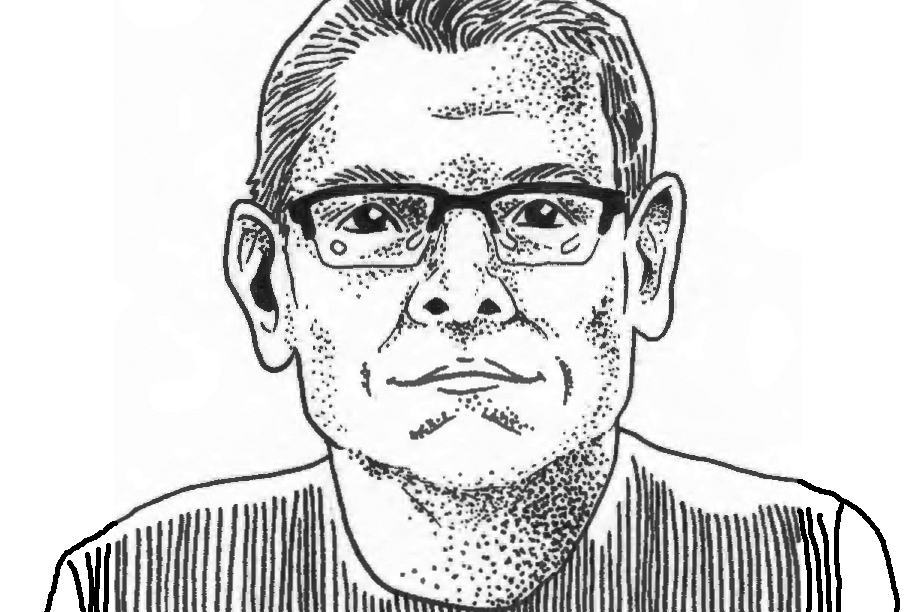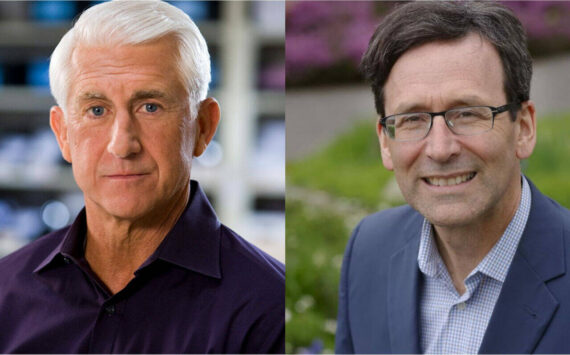The massacre at a gay nightclub in Orlando on June 12 has implications for a depressing plethora of issues facing society: guns, international terrorism, domestic terrorism, LGBT rights. It’s understandable, then, that yet another aspect of the attack has fallen by the wayside in our national conversation: The majority of those killed at Pulse were Latino, reveling at a party devoted to their culture.
But this hasn’t gone unnoticed at Entre Hermanos, which for more than 20 years has provided HIV/AIDS prevention education to Seattle’s gay Latinos. At the organization’s 23rd Avenue office, the names of the victims drive home the impact on the community: Yilmary Rodriguez Solivan, Geraldo Ortiz-Jimenez, Martin Benitez Torres. The majority of those killed were Latino, most of them Puerto Rican.
Toward the end of another long day last Thursday, Luis Fernando Ramirez, interim executive director at Entre Hermanos, chatted with Seattle Weekly about how the attack’s impact on the LGBTQ Latino community, a “minority within a minority” that is already often overlooked in American society.
How has the attack affected the LGBTQ Latino community in Seattle? Since the attack was particularly harmful to the LGBTQ Latino community, that makes a huge difference. We also have Latino night every Sunday night—we host Noche Latina every Sunday night at Neighbours. We decided not to host it on Sunday night, and this was the first time in 20 years we decided not to host a Latino night. We have been doing that Latino night for 20 years now—Entre Hermanos has been in the community for over 20 years—[but] because of the attack we decided, for the first time, there’s no reason to celebrate. We commemorated the victims of Orlando, we were at the vigil at Cal Anderson Park, so we were saying that makes us unique because we were the community that was attacked.
The attack has been talked about in an LGBT context, but not so much in a Latino context. Yes, most of the media is saying it was an attack against the LGBTQ community, but they haven’t specifically mentioned it was aimed at the Latino community. We’re hurt because it was against the LGBTQ community but deeply hurt because we are Latinos. And then afterward … we’re not named like we were the ones who were attacked. We are a minority within a minority, so it’s difficult to understand why they’re not saying we were the ones who are attacked. That really hurt.
Even prior to the attack I have to imagine that the LGBTQ Latino community was not something in many Seattleites’ consciousnesses. Well, we think since the work that we’re doing for the LGBTQ community about prevention and education on HIV/AIDS … we are very well known in that area, but not as a Latino organization. I think there is still this stigma within the Latino community about being LGBTQ.
That stigma is greater within the Latino community than other groups? Yes. Most of the Latinos’ families are Catholic, so that makes a huge difference, and homophobia is something that is very, very clear in our community. For people who live here in America and the United States, maybe we can learn about the other communities and the other races, but it’s something that when I lived in Mexico, homophobia was that part of society—you would not understand why it existed. It’s stronger in the Latino community, being Catholic, being Latino, culturally it’s not well accepted.
So has the broader Latino community recognized the attack in Orlando as an attack on Latinos? The understanding about what happened in Orlando was that it was against the Latino community, against the Latino LGBTQ community.
Despite the stigma? Yes, we have had a lot of phone calls or e-mails from other organizations, supporting the job that we are doing. Not just the job we are doing regarding HIV and AIDS, but for providing a safe place for the Latino LGBTQ community. If they have a problem or something that’s bothering them, they know they can come to us. Even if we can’t provide those services, we know where to refer them.
What does Entre Hermanos have planned for the Pride Parade? We always have a theme for the parade, and this time it’s going to be wings. And wings, when we decided to choose that theme [prior to the parade], was because being free, not only for the LGBTQ community or Latino community, but for everyone, it makes us happier. It’s a coincidence, but…
Lastly, I saw a quote online to the effect that following Orlando, people will try to pit one marginalized community, gays, against another marginalized community, Muslims. Seeing as gay Latinos are marginalized on several fronts, that must ring especially true. After this brutality that happened in Orlando, there was an incident, an attack here in Seattle, at a mosque. I want to be clear that that was not in our name. We are not fighting hate with hate. Hate is not the answer.
dperson@seattleweekly.com








